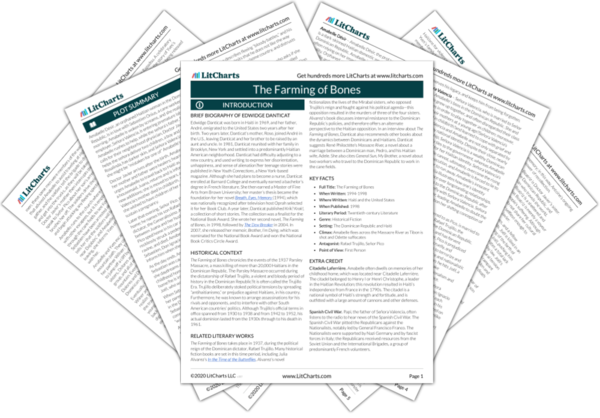Joël, a field worker and a friend of Sebastien Onius, is killed by Señor Pico in a car accident. Señor Pico does not take responsibility for the death, and the Haitian community is left to mourn the loss without a sense of closure or justice. Joël’s father, Kongo, grieves deeply for his son, illustrating the strong and pervasive impact that death can have on those left behind. Kongo also creates a death mask for Joël, a physical representation of his memory for others to look upon. Kongo admits that the mask is just a reminder of his son, and cannot live up to the importance of its namesake. He also tells Amabelle that the object is meant to keep his son alive in the community’s memory when Kongo passes away, as he will no longer be able to honor his son’s legacy when he is dead. Amabelle then attempts to take the mask across the river as she flees the massacre; in doing so, she is hoping to physically safeguard Joël’s legacy and bring an embodiment of him back to Haiti, their home country. The mask is therefore a form of testimony and remembrance: it tells the story of Joël’s death and thereby preserves his image into the future.
Joël’s Mask Quotes in The Farming of Bones
“Are you certain you don’t want to keep this face for yourself?” I asked.
“I’ve made many,” he said, “for all those who, even when I’m gone, will keep my son in mind. If I could, I would carry them all around my neck, I would, like some men wear their amulets […] The elder of your house, Don Ignacio, he’s not asked again to come and see me, no? […] I’m not surprised,” he said, “that my son has already vanished from his thoughts.”










